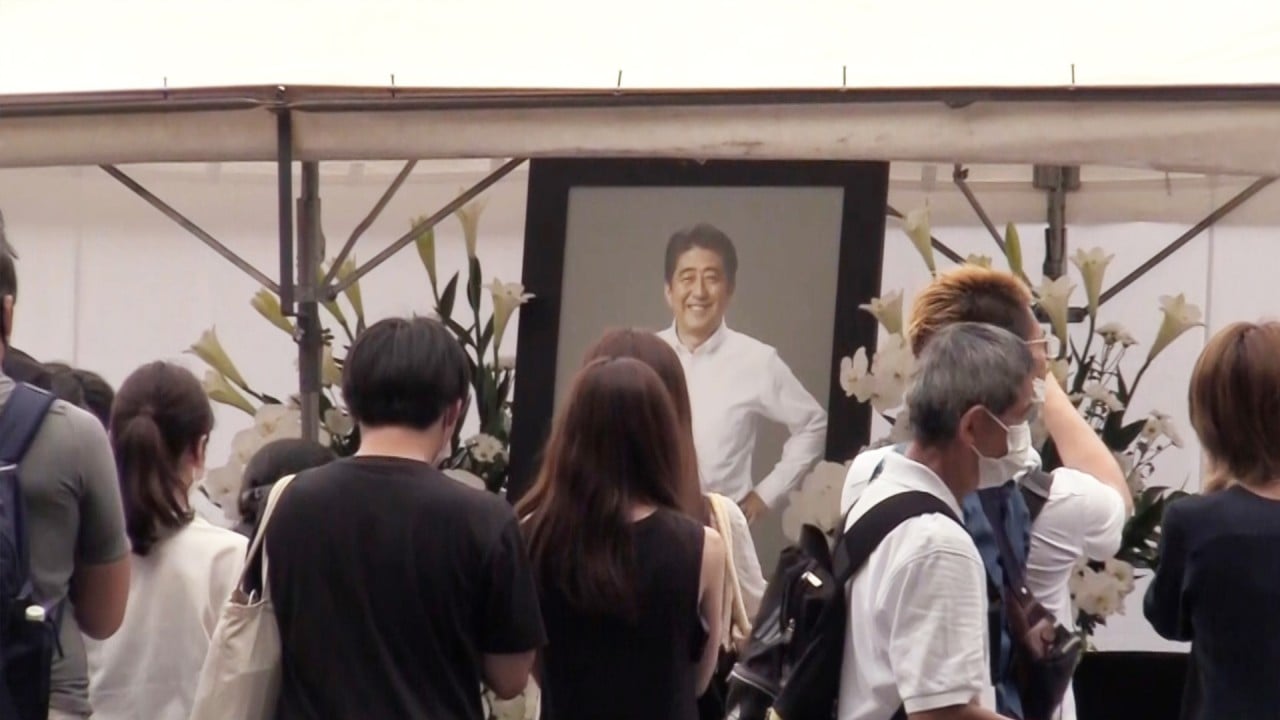
Japan’s drift and Europe’s troubles do not bode well for Pax Americana
- Post-Abe Japan has moved a step closer to amending its pacifist constitution and Europe is straining to deal with the economic pain from the war in Ukraine
- These events shaking up the United States’ key allies are likely to cast a long shadow over Washington’s global alliance system
Then on July 14, Mario Draghi, Italy’s non-partisan premier, tendered his resignation after the populist Five Star Movement, the second biggest party in the coalition government, boycotted a critical vote in the Senate on his government’s economic aid package.
All these events shaking up America’s key allies are likely to cast a long shadow over Washington’s global alliance system.
A leadership change could serve to buy time for a stocktaking, to say the least. After all, as eventual British prime minister Lord Palmerston said in 1848: “We have no eternal allies, and we have no perpetual enemies. Our interests are eternal and perpetual, and those interests it is our duty to follow.”
It was against the backdrop of a listless economy and dispiriting social spillovers that Abe became a major force in Japan’s closed politics. His long-held goal was to revise the country’s pacifist constitution, which was promulgated after World War II and which renounces the right to maintain an army and wage war.
He hoped to make Japan a “normal” state that would be able to defend its interests with its military, in a bid to shake off a national mood of resignation and foster a stronger sense of national pride. This strategy also entailed joining in America’s endeavour to counter a rising China.
How Nato’s stance on China has changed, and why it matters
Over in Europe, the political crisis in Italy, the third largest national economy in the European Union, reflects the severe pressure on EU member states which are bearing the economic brunt of the war in Ukraine. Draghi, the respected former president of the European Central Bank, has led the cross-party Italian government since 2021 and the Five Star Movement seems to have tolerated Draghi as he is on good terms with Brussels and Berlin, a big advantage when it comes to talks of assistance from the EU.
In boycotting the vote on economic aid on July 14, the Five Star Movement accused Draghi of not doing enough to alleviate Italian families’ economic suffering. The premier offered his resignation to President Sergio Mattarella, who nevertheless refused to accept it and asked him to hold on and sort things out; if he does stay on, however, Draghi would be playing a loser’s game.

Either way, it would help Germany and France to plead with the US to understand how difficult it is for the EU to keep pace with America on a united strategy, with regard to Russia and a hardening and enlarged Nato.
Washington, thus far blinded to this reality by its black-and-white world view, should accept a multipolar world order, as I have all along advocated.
Nevertheless, going forward, the US-dominated alliance system is unlikely to collapse dramatically, the way the Soviet Union did in the early 1990s when Eastern European countries broke with central power. Instead, it is more likely to suffer that intermediate fate called “Wimbledonisation”.
The term refers to the fact that the tennis tournament has evolved into an institution dominated by non-British players, though it continues to bring prestige and profit to the host country, Britain.
In America’s case, it should still be able to count nations as allies, host them at talks on shared values and interests, and even take some aligned actions with them. But the allies would be submissive junior partners no more.
Therefore, as Foreign Affairs suggested last month, “the real end of Pax Americana” could come as America’s allies increasingly go their own ways. And this new international order, when it dawns, perhaps cannot be blamed on the designated arch rival, China.
Terry Su is president of Lulu Derivation Data Ltd, a Hong Kong-based online publishing house and think tank specialising in geopolitics


